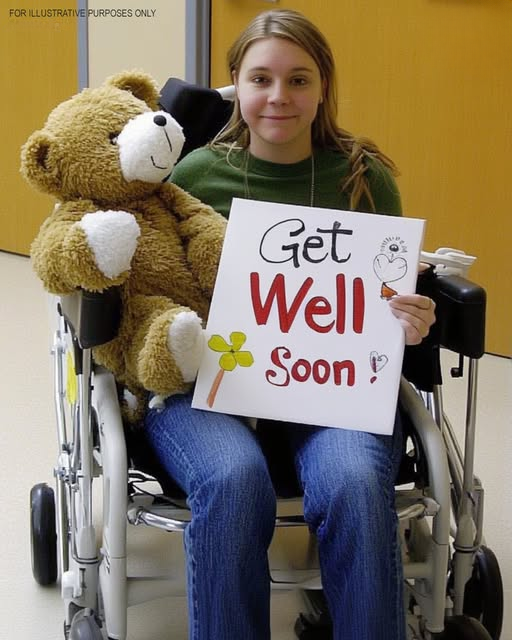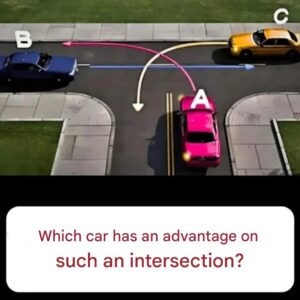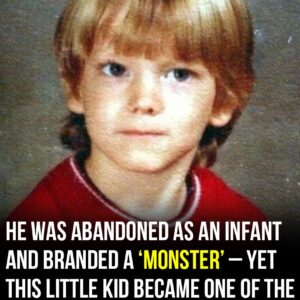
MY FATHER ABANDONED ME WHEN I BECAME DISABLED & YEARS LATER, FOUND ME TO BEG FOR HELP
When I was 19, a terrible accident left me unable to walk. My mom had passed away years before, so my dad was all I had left. But he was never the loving, supportive type. What he did after my accident, though? It completely destroyed me.
He didn’t even show up at the hospital until three days later. And when he found out I needed long-term care, his reaction? “She’s over 18, is’’t she? She’s an adult, right? So she’s not my responsibility anymore. You take her.”
And just like that, he walked out, leaving the doctors—and me—completely shocked. At the time, I could never imagine that years later, he would return and beg me for help.
The day my father walked out of the hospital felt like a death I had to mourn while still alive. I lay there, staring at the sterile white ceiling, feeling the weight of a future I didn’t know how to navigate. Friends visited less and less. Eventually, I was transferred to a care facility where I learned to live with my disability.
The early days were filled with bitterness. I threw myself into physical therapy—not because I believed I’d walk again, but because I needed something, anything, to channel my anger into. Every day, I replayed my father’s cold words, his dismissive tone, and his complete rejection of me. Over time, I learned to adapt, even thrive, despite the gaping wound he left behind.
Part 2: Building a New Life
Years passed, and I carved out a life for myself. I became an advocate for disability rights, helping others navigate challenges similar to mine. My work gave me purpose, and I surrounded myself with people who saw my worth—something my father had failed to do.
I eventually moved into my own apartment, a cozy, accessible space filled with reminders of the strength I had cultivated. Despite the progress, there was always a small, lingering shadow of pain whenever I thought of him. Questions haunted me: Why wasn’t I enough? Why did he leave so easily?
Part 3: A Sudden Return
It was a cold, rainy afternoon when he showed up at my door, unannounced. I didn’t recognize him at first. His once-sturdy frame was hunched, his face weathered beyond his years. He looked like a man who had lost everything—and in a way, he had.
“Hi… it’s me,” he said, his voice hesitant.
I stared at him, words caught in my throat. Memories of that hospital room, his cruel dismissal, came rushing back.
“What are you doing here?” I finally asked, my tone sharp.
“I need help,” he said, his voice cracking. “I—I didn’t know where else to go.”
Part 4: The Revelation
Over the next few minutes, he spilled out a story I never expected to hear. He’d lost his job, his home, and his health had taken a turn for the worse. His family had abandoned him, just as he had abandoned me. It was almost poetic justice, yet I felt no satisfaction in his suffering—only a deep, hollow ache.
“I know I don’t deserve your forgiveness,” he said, tears streaming down his face. “But you’re the only family I have left.”
I wanted to slam the door in his face, to throw his abandonment back at him. But instead, I found myself saying, “Come in.”
Part 5: Confronting the Past
For weeks, he stayed in my spare room. I helped him find doctors, apply for benefits, and stabilize his life. But the unspoken tension between us grew heavier with each passing day.
One evening, I couldn’t hold it in any longer. “Why did you leave me?” I asked, my voice trembling. “Do you have any idea what that did to me?”
He looked down, shame etched into his features. “I was scared,” he admitted. “Your mom always knew how to handle everything. When you got hurt, I didn’t know how to be the parent you needed. So I ran.”
“That’s not an excuse,” I said, tears in my eyes. “I was your child. I needed you.”
“I know,” he whispered. “And I’ll regret it for the rest of my life.”
Part 6: Finding Closure
It wasn’t easy, but over time, we started to rebuild our relationship. He began volunteering at the same advocacy group I worked with, using his story to help others confront their own fears and failures. In helping others, he found a way to begin making amends—not just to me, but to himself.
Our relationship was far from perfect, but it was a start. And as I watched him grow into someone I could finally respect, I realized that forgiveness wasn’t about erasing the pain—it was about letting go of its power over me.





